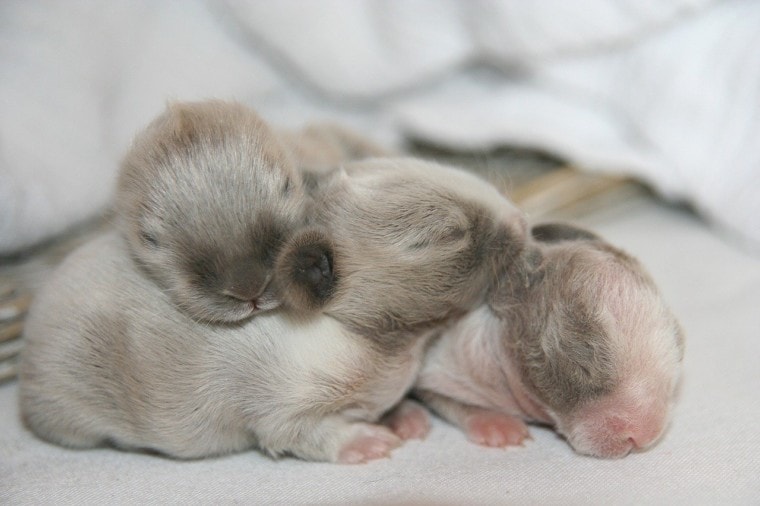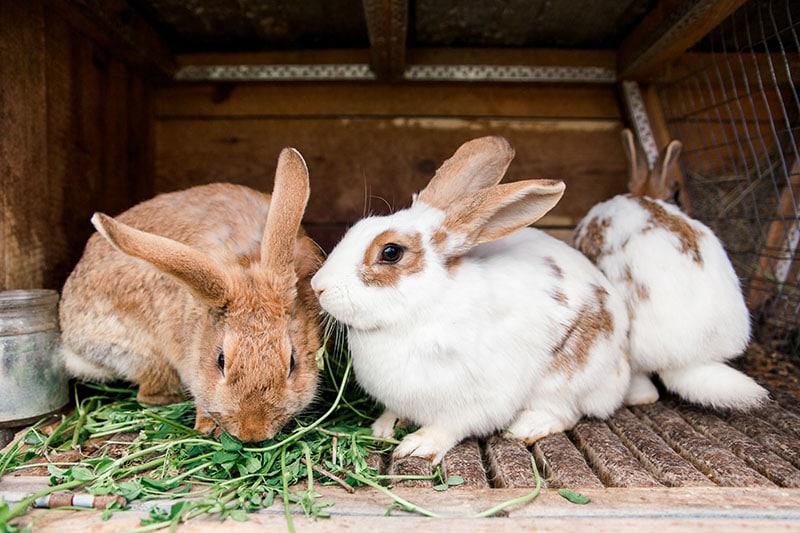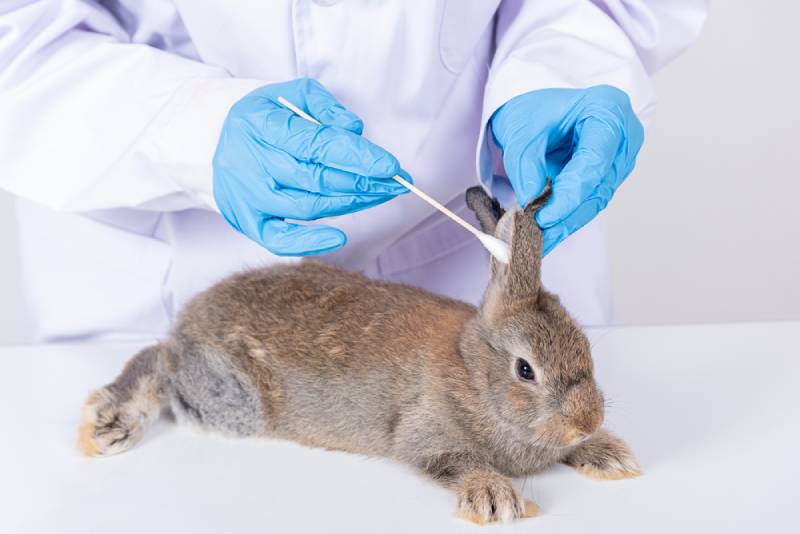
As most of us know, animals are unpredictable creatures. For example, cats take care of their kittens for weeks before they venture out on their own, but snakes don’t take care of their young at all. Rabbits, on the other hand, will eat their young if their owners aren’t careful.
Kits (baby rabbits) should be protected from birth so that their mother doesn’t eat them. Many rabbit owners are surprised that a mother rabbit will eat her kits since rabbits are herbivores. While this happens rarely, it’s still something you have to be prepared for. Below, we’ll discuss why a mother rabbit will sometimes eat her young and how to stop the behavior, so join us.
Why Do Mother Rabbits Eat Their Babies?
While mother rabbits have been known to eat their young, it’s not a cause for panic. It happens very rarely and is usually caused by mother rabbits that are stressed or have an illness. If the mother feels she can’t properly care for her kits, she will eat them.
Here are a few other reasons that a mother rabbit will eat her young:

 The 6 Ways to Prevent a Rabbit from Eating Her Babies
The 6 Ways to Prevent a Rabbit from Eating Her Babies
Now that you know why mother rabbits sometimes eat their young, we’ll give you a few tips for trying to prevent this from happening.
1. A Protein and Nutrition Rich Diet
One of the best ways to keep your rabbit from eating her kits is to ensure she has a protein and nutrition-rich diet during her pregnancy. It’s also essential to feed the mother more during the last few weeks of pregnancy.
Ensure the mother rabbit’s diet consists of plenty of alfalfa hay and leafy greens. The pregnancy and delivery will be hard on the rabbit, so you want to increase her nutrition intake during the last several weeks. Of course, you should always have fresh, clean water in the hutch.
2. Provide Security and a Calm Environment
As with human females, the mother rabbit will go through quite a few hormonal changes when they are expecting. It’s essential to provide a calm, reassuring, secure environment for the doe so she’s not stressed.

3. Keep a Close Eye on the Mother After She Delivers
You can expect your mother rabbit to eat the placenta after she gives birth. Rabbits do this because the scent of the placenta will attract predators. If the mother is inexperienced or too young, she may think that one of her kits is the placenta as well and cannibalize the baby. Make sure you watch her closely and stop her if she eats one of the babies instead of the placenta.
4. Distract the Mother Rabbit with Toys or Food
In most cases, the urge to eat their young doesn’t last long with rabbits. However, if your rabbit still wants to make her kits dinner, try distracting her with food or toys. Giving her food or toys to play with will distract her attention from her newborn kits.

5. Refrain from Breeding Young Rabbits
The best way to prevent your rabbit from eating her young is never to breed rabbits that haven’t reached maturity yet. While there’s no guarantee that your mature rabbit won’t eat her babies, you stand a greater chance of it not happening if the rabbit is mature. However, when a doe is mature enough to mate varies by species, so you might want to consult your vet.
6. Separate the Mother from the Kits
If none of the steps above work for keeping your rabbit from eating her young, it’s time to separate the doe from the kits. You can try to reintroduce the rabbit to her young after 24 hours; if the behavior persists, you might need to raise the kits to adulthood on your own. You can put her in the cage to feed the kits once a day, but make sure to be there to constantly supervise the feeding.

 Final Thoughts
Final Thoughts
While mother rabbits rarely eat their young, it can happen, so it’s something you must be on the lookout for when your female has babies. There are several reasons a rabbit will eat her young, including stress, unhealthy kits, and dietary problems.
If the methods above fail to work to keep your rabbit from cannibalizing her babies, you need to separate her from her kits. You can contact your vet to find out how to take care of the babies on your own until they are adults. Until then, keep a close eye on your rabbits and try the steps above to keep the babies safe.
- Related Read: 5 Most Aggressive Rabbit Breeds (With Pictures)
Featured Image Credit: auenleben, Pixabay







